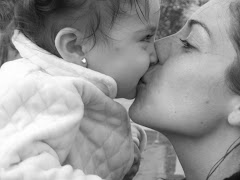Expertise and experience:
1. Advising and mentoring Amherst College students and young alumni who seek to explore and pursue careers in health.
2. Teaching (until December 2010 at Hampshire College in Amherst, Massachusetts, and as adjunct lecturer at UMassAmherst School of Public Health), mentoring, advising, dialogue, organizing, advocating, and experience to learn, practice, and pursue health in all its dimesnions. Has included courses on health disparities, and cultural and linguistic competence, internships, independent study, research, seminars to build leadership capacity of young people and future public health work force.
3. Synthesizing research on social determinants of health, resilience, traumatic childhood experiences, racism, chronic stress, and conditions for productive dialogue that will have a significant impact on future public health practice.
3. Translating this research into humane MCH and public health practice to improve the health of women and children, with systems that honor families, communities, and cultures.
4. Integrating cultural understanding and respect as a key strategy to end health disparities.
5. Changing the language of public health and medicine to better reflect our ideals and purpose.
6. Bringing multiple stakeholders together to untangle complex public health challenges and take collaborative action to solve them.
Service
1. Inspiring a new generation of leaders in public health and service through a wide range of local, national, and global opportunities.
2. Until January 2011, consultation to individuals, communities, organizations to build capacity in the above, by
a) Inspiring keynotes, presentations, workshops.
b) Organizing forums to build essential but previously unlikely partnerships.
c) Serving as catalyst for intergenerational and cross-cultural dialogue.
c) Writing papers and grants.
3. Organization and facilitation of interactive meetings with broad stakeholder participation to unite diverse parties and spark action to create public health equity.
For more information, contact:
raaronson69@amherst.edu
"A smile is the light in the window of your face, which tells people that your heart is at home."
- Kolawole Bankole, M.D, M.S
Method
Method
We serve as a global service, learning, and research center for creating humane and equitable systems for children and youth. To do this, we draw on Future Search, a planning and leadership method, which has been used with notable success in many of the world’s cultures. We use Future Search principles and meetings to unite people from all walks of life. We give them opportunity and voice in shaping humane systems. We lay the foundation for action to mobilize communities to face MCH challenges. What differentiates Future Search from most strategic planning methods are its four principles, synthesized by Weisbord and Janoff from 75 years of social science research:
- Get the “whole system” in the room—those with authority, resources, expertise, information, and need—all in the same conversation.
- Explore the whole before seeking to fix any part. Each person has a part of the whole. When all stakeholders have the chance to put in what they know, each has a picture that none had coming in, and they can plan together in a shared context.
- Put common ground and future action front and center. Problems and conflicts become information to be shared, not action items.
- Set up meetings so people can do the work for themselves. With self-management and personal responsibility encouraged, groups are capable of doing much more than they are usually asked to do.











No comments:
Post a Comment